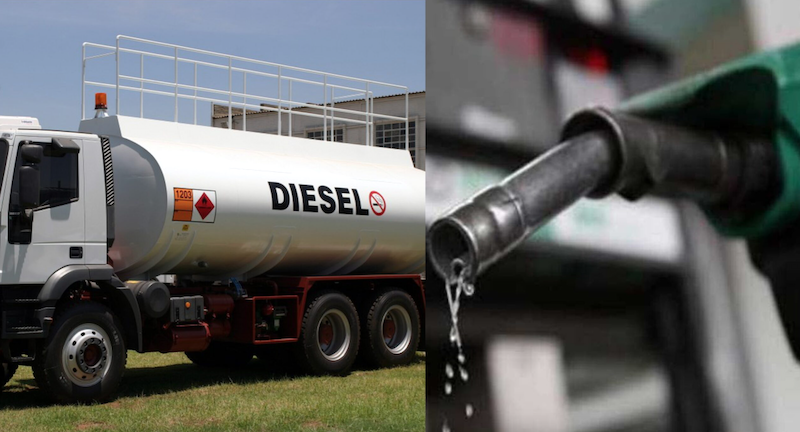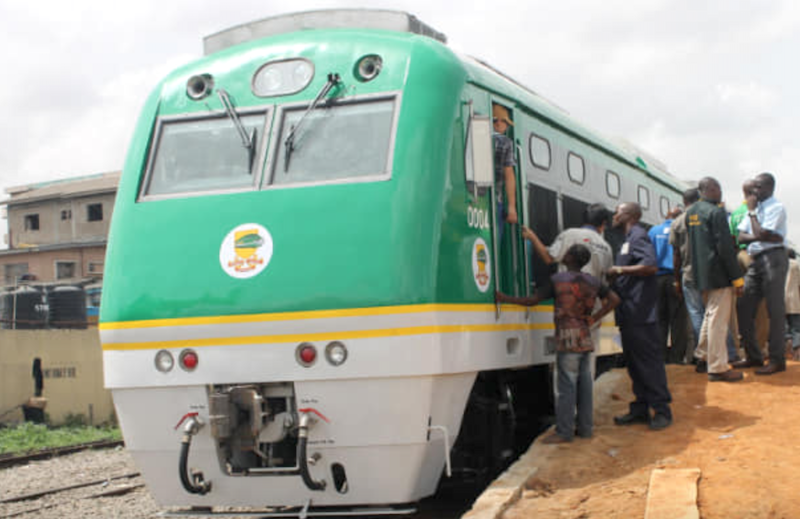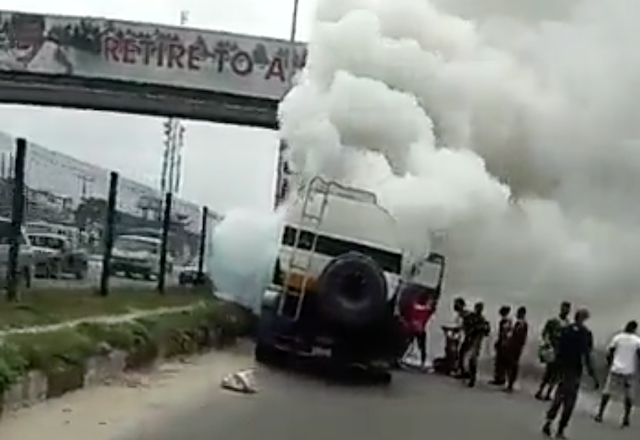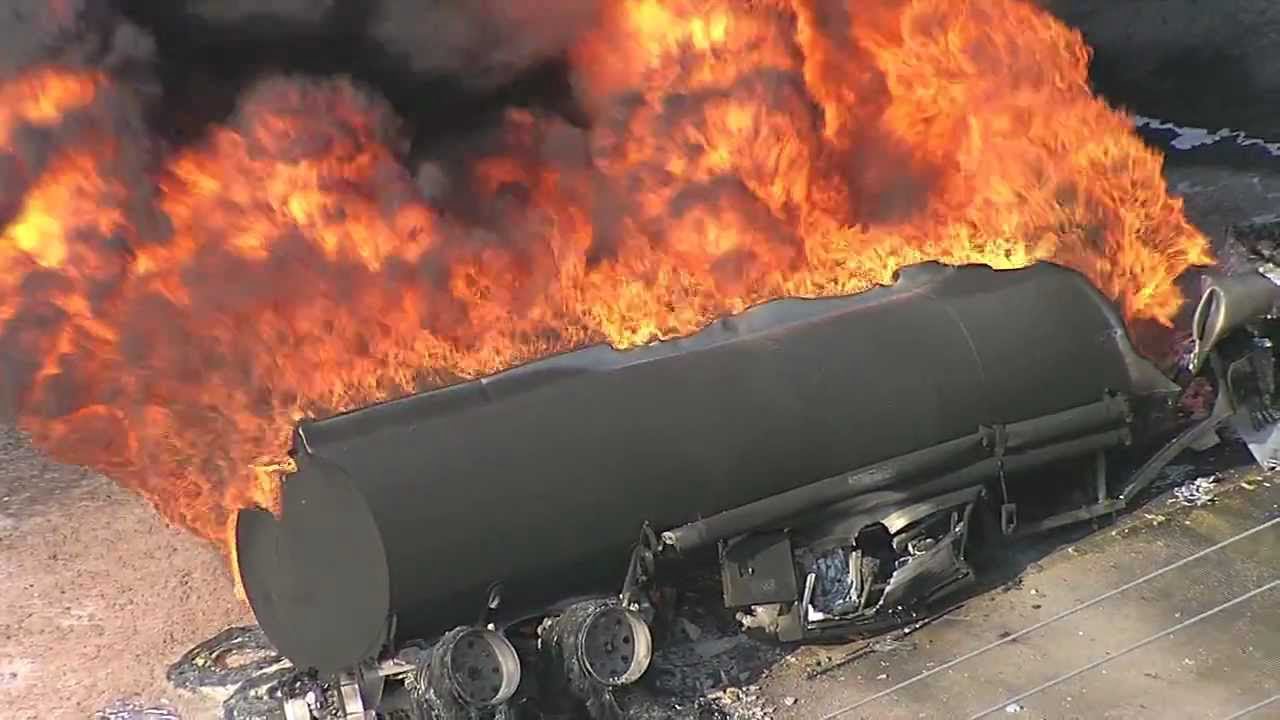Diesel has become a local symbol of the global energy crisis and Nigeria’s expansive economic woes. The astronomical rise in the price of diesel, the fuel that powers a large part of the industrial, commercial, and domestic activities in the Nigerian economy, has sent chills and ripples throughout the economy, from manufacturing giants through medium-sized enterprises and small-scale organisations to individual homes that rely on it for power because of non-existent or epileptic electric power supply.
Diesel’s stronghold on Nigeria’s economy is seen from gigantic diesel powered generating plants that turn the industrial machines in Nigeria through the trucks used for long-distance haulage of industrial and finished goods to small devices used by small-scale enterprises. The demand for diesel is inelastic as there are virtually no substitute products in the short run; therefore, a change in price does not have a devastating impact on demand.
Producers and consumers bear the brunt of the diesel price increases. The price rose from about N260 per liter late last year to over N850 in some parts of Nigeria currently, and this has put unprecedented stress on the economy, threatening its ability to produce goods and services .
The debate about the cause of this scourge is raging. Some claim that it is because of the global energy crisis occasioned by the Russia-Ukraine war. Others argue that although the war in Europe may influence diesel prices in Nigeria, the effect alone should not have such an impact. The impact of the global energy crisis combined with local structural defects and deficiencies in the Nigeria energy mix, where although we are a large crude oil producer, we still import diesel and other petroleum products from abroad, have a lot to do with the rising prices.
This opens Nigeria up to supply-side shock, especially during global crisis, and Nigeria is not importing enough diesel to meet local demand, which invariably forces the price of diesel up. In the short run, our local refining capacity is low because our national refineries are almost comatose. There is hope in the medium to long term that private refineries like Dangote Oil Refinery and Petrochemicals, Walter-smith Refineries ,OPAC Refineries, Niger Delta Petroleum Resources, BUA Refinery and Petrochemicals ;and Edo Refinery and Petrochemical Company will increase local refining of crude and produce more diesel. But until then, Nigeria is at the mercy of the vagaries of the local and global energy crises that upend diesel supply and price with a devastating impact on the national economy.
The immediate impact of the hike in diesel prices can be seen in the stranglehold it is having on the Nigerian economy. The increase in production and distribution costs for goods and services due to the high price of diesel is passed on to consumers, leading to hyperinflation. Prices of goods and services are going over the roof, worsening an already grim poverty situation. Most people struggle to make ends meet as their disposable income loses value daily. More people are impoverished and cannot get basic provisions.
With the increase in prices, demand for goods with high demand elasticity plummets, which has a devastating effect on small-scale businesses that produce these goods and services and sometimes put them out of business. Hotels, private schools, artisans, and small-scale producers are responding by, reducing their staff strength, shortening their hours of operation , or shutting down outrightly because of the increase in the cost of production. This has negative implication for our fledgeling economy held together by these small businesses that are the engine room of our economy.
Other macro-economic impacts include the potential of increased lending rate by banks which would affect local prices Besides, savings will suffer as people struggle to satisfy their basic needs with dwindling disposable income. .
The social consequences of the harsh economic realities are enormous to contemplate. Soaring food as a result of rising fuel prices would ultimately lead to inflation. If furniture or smartphone prices rise, people can delay a purchase or forgo it. But they cannot stop eating. Likewise, increased transport costs affect most people and is inflationary by nature. This will further lead to high cost of living and lower standard of living.
The last time the world suffered a food-price shock as we have now, it helped set off the Arab Spring, a wave of uprisings that ousted four presidents and led to horrific civil wars in faraway Syria and Libya. The “END SARS” bruhaha is still fresh in our minds.
The government has to protect the economy and alleviate the pains of the problem of the high price of diesel. There is a vital strategic linkage between the diesel price hike and the movement of other variables in the economy . The Nigerian authority assumes that this problem is temporary and that diesel prices will return to normal levels soon, and this appears farfetched and unrealistic at best. Lack of proper energy planning for the future in the past has kept Nigeria in this state, and if nothing serious is done now, the crisis will exacerbate.
We must acknowledge that the Russian – Ukraine war will continue in the immediate to probably medium term. The demand for diesel will continue to increase, given the electricity providers’ poor power supply to both commercial and private users. Nigeria needs the energy to power its industrialisation in a world working hard to jettison carbon energy for clean and renewable energy.
It is time for a significant policy shift by the Nigerian government on oil. We need to start signing an array of sweeping executive orders and policies to create an energy mix fit for Nigeria’s growth. This policy shift should have short-term, medium-term, and long-term outlook. The short-term focus should be on solving the current diesel price crisis. As a matter of urgency, out of compassion and concern for the people’s welfare ,the government must tackle the high price of diesel and other related items like cooking gas and gasoline , which directly impinge on mass welfare , to avoid the economic quagmire it is throwing the country into.
The government should consider placing an embargo on VAT, Duties, and other forms of taxation on diesel immediately. Improved supply of diesel will significantly reduce supply-induced price increases. This includes provisions for more importation of diesel and intervening in the local distribution to most parts of the country to avoid shortage of the product in the country..
Another short-term measure is to support electric suppliers to increase power supply to small, medium, and large-scale companies and, if possible, offer discounts on electricity tariffs to manufacturers. This will immediately reduce the demand for diesel and invariably impact the product’s price. Government should help affected businesses by offering tax holidays, grants and subventions to the small companies on the verge of collapse due to the impact of high diesel prices on their production cost. These costs may be catered for with the money from the oil windfall from the high cost of crude oil in the global market. The price has risen to almost $135 per barrel. We are not feeling the impact of the oil windfall, and we are not sure how that is used to protect the economy.
In the medium term, the government should revive our moribund national refineries and increase their capacity to refine crude oil locally. It should encourage the proliferation of modular refineries to complement the quantity of diesel and petrol produced by government and private refineries. The government should turn Nigeria into a net exporter of refined petroleum products, including diesel, rather than exporting crude oil. The government should drastically reduce the amount of diesel imported from abroad, protecting the local energy sector and the economy from global energy crises like the one going on now because of the Russia- Ukraine war.
In the long run, the government should plan for a post-carbon energy era. Sustainable and renewable energy is the future. The government needs to make policies and take actions targeting providing clean energy by using the advantages of existing carbon energy to fund the energy transition. I will suggest that government develops a new institutional mechanism for managing the funds from this last stage of rapid oil transition revenue. It should localise the Paris climate propositions, tax the fossil fuel industry, and use the funds to implement our energy transition before we can revoke permits for new and old oil fields and convert our government’s fleet of vehicles to electric power. We need an ambitious proposal that will drive net-zero greenhouse gas emissions across Nigeria’s economy by 2035 while not jeopardising the overall economic health.
This situation of diesel price hike provides Nigeria with pains and opportunities. The ‘pains’ are excruciating and biting hard. People, companies, and organisations are struggling with the crippling effect of high energy prices, from petrol and gas to diesel. The economy is in a meltdown. Something needs to be done and done fast. But this time provides us the opportunity to get it right. To create policies and actions that will help with the energy crisis now. And in the future, offer energy solutions to grow our economy. That is why the forthcoming election is crucial. We must vote for leaders with the clarity of vision and capacity to tackle the energy crisis once and for all .








![[Video] Petrol, diesel storage tanks explode in Niger](https://thenewsguru.ng/wp-content/uploads/2022/03/Tanker-explodes.jpg)